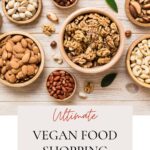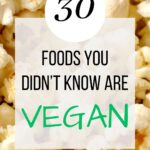Veganism and carnivorism are two dietary and lifestyle choices that involve the consumption of different types of foods.
In this post, we will look at the differences between vegan and carnivore diets, including which one might be healthier.
- Vegan vs Carnivore
- Is it Healthier to be Vegan or Carnivore?
- Vegan vs Carnivore Bodybuilding
- Final Thoughts
Vegan vs Carnivore
Veganism and carnivorism are two dietary and lifestyle choices that involve the consumption of different types of foods. Veganism is a dietary and lifestyle choice in which individuals abstain from consuming or using any animal products. This includes not only meat, but also eggs, dairy products, honey, and any other animal-derived ingredients. In addition to abstaining from animal products in their diet, vegans also try to avoid using animal-derived products in other areas of their life, such as clothing, cosmetics, and household items.
Carnivorism, on the other hand, involves the consumption of animal-based foods as the primary source of nutrients. This includes meats such as beef, pork, chicken, and fish, as well as other animal products like eggs and dairy.
One of the main reasons people choose to follow a vegan diet is for ethical reasons. Many vegans believe that it is wrong to exploit and harm animals for food, clothing, or other purposes. They may also be motivated by concerns about the environmental impact of animal agriculture.
Is it Healthier to be Vegan or Carnivore?
There are also some potential health benefits associated with a vegan diet. Plant-based diets have been shown to be linked to a lower risk of certain chronic diseases, such as heart disease, type 2 diabetes, and certain types of cancer. However, it is important to note that it is possible to follow an unhealthy vegan diet, so it is important to ensure that you are getting all the nutrients your body needs.
One potential concern with veganism is the risk of nutrient deficiencies. Some nutrients that may be of particular concern for vegans include vitamin B12, iron, and omega-3 fatty acids. Vitamin B12 is found almost exclusively in animal products, so it is important for vegans to include fortified foods or supplements in their diet to meet their needs. Iron is also more easily absorbed from animal sources, so vegans may need to make an effort to include iron-rich plant foods in their diet, such as legumes, nuts, and seeds. Omega-3 fatty acids are also found mostly in animal products, but can also be obtained from algae-based supplements.
Carnivorism, on the other hand, is a diet that is high in animal-based protein and fat. Z carnivorous diet may be associated with an increased risk of certain chronic diseases, such as heart disease and certain types of cancer. It is important for carnivores to ensure that they are getting a variety of nutrients from their diet and to be mindful of their intake of saturated fat and cholesterol.
Vegan vs Carnivore Studies
There have been numerous studies that have compared the health effects of vegan and carnivorous diets. Here are a few examples:
- A systematic review and meta-analysis published in the Journal of the American College of Nutrition in 2016 found that a vegan diet was associated with a lower risk of heart disease, high blood pressure, and type 2 diabetes compared to a non-vegan diet. However, the study also found that vegans had a higher risk of developing certain nutrient deficiencies, such as vitamin B12 and iron.
- A study published in the Journal of the American Heart Association in 2018 found that a plant-based diet, which includes both vegan and vegetarian diets, was associated with a lower risk of heart disease and stroke compared to a non-vegetarian diet.
- A study published in the American Journal of Clinical Nutrition in 2016 found that a vegan diet was associated with a lower risk of developing certain types of cancer, including breast, prostate, and colorectal cancer, compared to a non-vegan diet.
- A study published in the Journal of the American Medical Association in 2017 found that a vegetarian diet, which includes both vegan and lacto-ovo-vegetarian diets, was associated with a lower risk of death from any cause compared to a non-vegetarian diet.
It is important to note that these studies have limitations, and the results should be interpreted with caution.
Vegan vs Carnivore Bodybuilding
Both vegan and carnivorous diets can be effective for bodybuilding, as the key to building muscle is to consume enough protein and calories to support muscle growth and repair. However, it is important for bodybuilders on either type of diet to carefully plan their meals and ensure that they are getting all of the nutrients they need to support their training.
Protein is an essential nutrient for bodybuilding, as it is necessary for muscle growth and repair. Animal-based protein sources, such as meat, poultry, fish, and dairy, are typically high in protein and other essential nutrients, and can be convenient and efficient sources of protein for bodybuilders on a carnivorous diet. However, vegans can also meet their protein needs through plant-based protein sources, such as beans, lentils, tofu, tempeh, nuts, and seeds. It is important for vegans to consume a variety of protein-rich plant-based foods and possibly use protein supplements to ensure that they are getting enough protein.
In addition to protein, bodybuilders need to consume enough calories to support muscle growth and repair. Both vegan and carnivorous diets can provide adequate calories, as long as they are well-planned and balanced. It is important for bodybuilders to track their intake of macronutrients, including protein, carbohydrates, and fats, and ensure that they are consuming enough of each to support their training.
It is also important for bodybuilders on either type of diet to pay attention to their intake of other essential nutrients, such as vitamins, minerals, and omega-3 fatty acids, which are important for overall health and muscle function. Bodybuilders on a vegan diet may need to use supplements or fortified foods to ensure that they are getting enough of these nutrients.
In conclusion, both vegan and carnivorous diets can be effective for bodybuilding, as long as they are well-planned and balanced to meet the increased protein and calorie needs of bodybuilders. It is important for bodybuilders on either type of diet to pay attention to their intake of essential nutrients and possibly use supplements or fortified foods to ensure that they are getting enough of these nutrients.
(Learn more at Vegan vs Carnivore Bodybuilding)
Are Vegans Stronger than Meat Eaters?
There is no evidence to suggest that vegans are inherently stronger or weaker than meat eaters. The strength of an individual is influenced by a variety of factors, including genetics, training, and overall physical health.
It is possible for both vegans and meat eaters to build strength and muscle mass through a combination of resistance training and proper nutrition. Protein is an essential nutrient for muscle growth and repair, and both vegans and meat eaters can consume adequate amounts of protein to support muscle building.
Vegan bodybuilders can meet their protein needs through plant-based protein sources, such as beans, lentils, tofu, tempeh, nuts, and seeds, while meat eaters can get their protein from animal-based sources such as meat, poultry, fish, and dairy.
Final Thoughts
In conclusion, veganism and carnivorism are two dietary and lifestyle choices that involve the consumption of different types of foods. Veganism involves abstaining from the consumption or use of any animal products, while carnivorism involves the consumption of animal-based foods as the primary source of nutrients. Both veganism and carnivorism can have potential health benefits and drawbacks, and it is important to ensure that you are getting all the nutrients your body needs and to be mindful of the potential risks associated with each diet.
See also:
Lance has been passionate about the plant-based diet and we have been following a whole food plant-based diet for over 5 years. We focus on health, natural healing, weight management, animal rights, and the health of the planet and environment by focusing on whole plant-based foods and sustainable practices.
Learn more at the About Me page and follow on social media at the links below.





